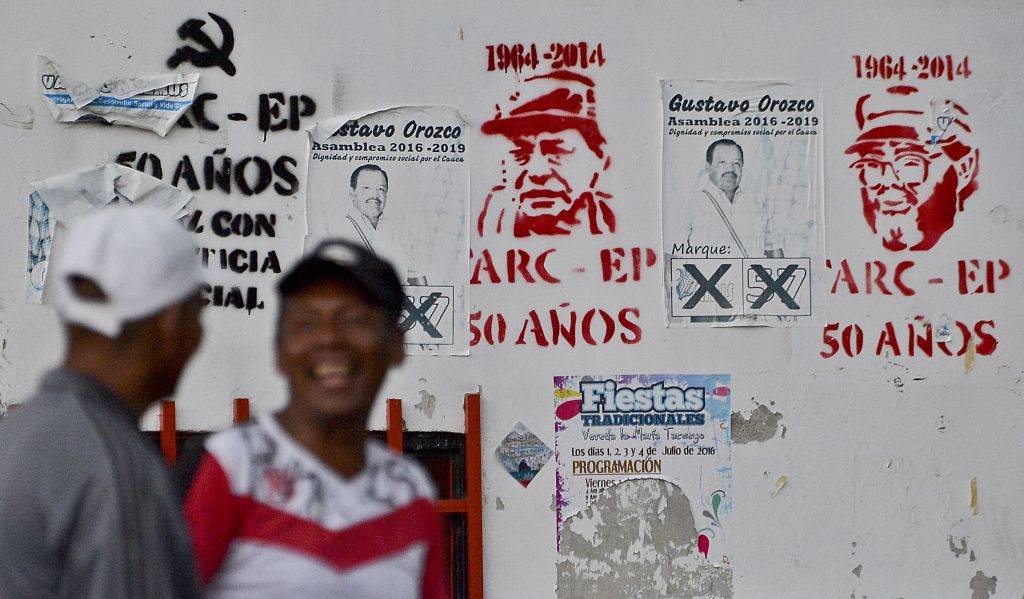Historic Colombia FARC ceasefire goes into effect, potentially forever


A free daily email with the biggest news stories of the day – and the best features from TheWeek.com
You are now subscribed
Your newsletter sign-up was successful
At 12:01 a.m. on Monday morning, the Revolutionary Armed Forces of Colombia (FARC) officially ceased hostilities to honor the terms of a peace accord signed in Havana, Cuba, last week. FARC leader Rodrigo Londono, also called Timochenko, described the ceasefire as permanent. "Never again will parents be burying their sons and daughters killed in the war," he said Sunday from Havana. "All rivalries and grudges will remain in the past." Colombian President Juan Manuel Santos has pledged that starting today, the Colombian military will no longer attack FARC rebels.
Colombians will vote on whether to accept the peace accord in an Oct. 2 referendum, and FARC commanders will meet in September to ratify the peace deal on their end. Polls suggest Colombians will approve the deal, and if they and FARC's leadership do ratify it, the rebels will have six months to turn over their weapons. In return, a post-FARC political faction will be given 10 seats in congress for 10 years, or two terms, after which they will have to win elections to retain their representation. The FARC insurgency is the longest-running armed conflict in the Americas; more than 220,000 people have been killed in the 52-year guerrilla war.
A free daily email with the biggest news stories of the day – and the best features from TheWeek.com
The Week
Escape your echo chamber. Get the facts behind the news, plus analysis from multiple perspectives.

Sign up for The Week's Free Newsletters
From our morning news briefing to a weekly Good News Newsletter, get the best of The Week delivered directly to your inbox.
From our morning news briefing to a weekly Good News Newsletter, get the best of The Week delivered directly to your inbox.
Peter has worked as a news and culture writer and editor at The Week since the site's launch in 2008. He covers politics, world affairs, religion and cultural currents. His journalism career began as a copy editor at a financial newswire and has included editorial positions at The New York Times Magazine, Facts on File, and Oregon State University.
